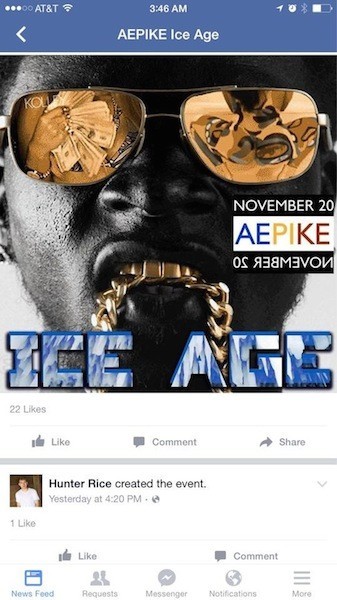A group of men lurk in the bushes waiting for the next wave of travelers, their adrenaline rising as the sun begins to set. The rhythmic trot of horses grows louder as a large caravan of travelers approaches down the dusty path.
The men appear from the bushes dressed as soldiers ready to befriend their next victims. They join the caravan, offering company and protection. After two days of traveling together, the group sets up camp.
Dusk falls and the crooks strike. Some strangle the travelers’ necks with yellow silk scarfs while others sing songs to mask their screams for help. The men ransack the now quiet camp and disappear into the night.
Murderers such as these were part of a widespread organized crime unit known as the Thuggees that operated along India’s expansive road system. The cult’s history goes back to the 13th century with stories of scenes just like this. At its root the Hindi word “Thuggee” means “deceivers”. The word was gradually shortened to “thug”.
Today, the word “thug” has been re-appropriated to mean something that would be unrecognizable to those in the 13th century.
“Our society does have a pejorative view of the word. It is certainly a word representing criminality,” said Dr. Ben Voth, expert of political discourse.
Controversy over the word surfaced this year on SMU’s campus when two fraternities included the word on a party invitation. The party’s description encouraged students to “bring out their inner thug.” The choice of wording was ill-received by many in the SMU community, and the fraternities consequentially canceled the event.

Idara Akpan, a member of the Association of Black Students at SMU, was one of the students offended by the fraternities post.
“The party was offensive because the word pertains to a certain race and the invitations reference to certain clothes continued to perpetuate the stereotype the word has,” said Akpan.
Some members of the involved fraternities said they were unaware of the sensitivity of the word when they designed the invitations.
“I was not aware of the negativity of the word and the harm it causes to the black community, and I am deeply sorry for any hurt caused to people on our campus,“ said a member of Pi Kappa Alpha fraternity.
The word “thug” also appeared in the news in April when covering the case of Freddie Gray’s death. Media commentators and city officials referred to some of the Baltimore protesters, who looted the city’s convenience stores during the police brutality riots, as thugs. Even President Obama used the word in a press conference from the Rose Garden to describe violent individuals.
“My understanding is you’ve got some of the same organizers now going back into these communities to try to clean up in the aftermath of a handful of criminals and thugs who tore up the place,” said Obama on April 28, 2015.
Many cultural critics point out that the problem lies in how “thug” is used and whom it is used to describe. The word is often used to reference black Americans but it is not used to label white Americans when they demonstrate the same behavior. It is the discrepancy between the uses of the word that most people find offensive.
“Its racial valence is equivocal and not stable. I do think at times people have a racial construct in their mind when they use the word, and it is possible that two people using the word have different images in mind while using it in conversation. This is common problem between signs and referents in communication,” said Dr. Voth.
Some SMU students did not see the racial inequity in the inherent usage of the word before the issue came to light on campus.
“I didn’t realize people thought it was offensive. Maybe it was the setting I grew up in, but I didn’t know the word pertained to race,” said finance and journalism double major Chris Warley. “Now that I do know it’s racially insensitive, I will be more cautious moving forward,” he said.
The word was claimed by the 1990’s hip-hop scene that sprouted in New York neighborhoods and spread across the nation. The popular American music group, Bone Thugs-n-Harmony, started a complicated relationship between the word and the music industry.
“I think it has been romanticized and idealized to some extent by music and media to represent a kind of boldness in character,” said Dr. Voth.
Today, the word is still glorified in the hip-hop world. Rappers like Young Thug tout misogyny, violence, and power in his lyrics, which furthers its negative association.
“It’s definitely not helpful that rap culture encourages and perpetuates the stereotypes that face black culture,” said advertising major Akpan.
But even before its appearance in rap culture, the word had a long history.
The frequency of “thug” use in American English started in 1897 shortly after Mark Twain referenced the “thuggees” in his book, Following the Equator: A Journey Around the World.
Former British Prime Minister Margaret Thatcher used the word regularly to describe disorderly soccer fans that often vandalized small towns.
The word also rose in popularity after the release of Steven Spielberg’s Indiana Jones and the Temple of Doom, which presented a dramatized visualization of the historical “thuggee”.
Journalist Megan Garber traced the words history for an article in The Atlantic. Garber describes the “thuggees” advanced organization and violent control on India’s road system.











